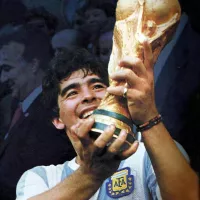La Liga, officially LaLiga EA Sports, is the top professional football league in Spain. Organized by the Liga Nacional de Fútbol Profesional, it features 20 teams competing over 38 matchdays. It represents the highest level of Spanish football. The league's champion qualifies for the Champions League, with other top finishers also securing spots in European competitions. La Liga is renowned for its history, star players, and global popularity.
April 1928: Proposal for a national league in Spain
In April 1928, José María Acha, a director at Arenas de Getxo, proposed the creation of a national league in Spain.
1929: Formation of the first Primera División
In 1929, the Real Federación Española de Fútbol agreed on the ten teams that would form the first Primera División. These teams included Arenas, Barcelona, Real Madrid, Athletic Bilbao, Real Sociedad, Real Unión, Atlético Madrid, Espanyol, Europa, and Racing de Santander.
1930: Athletic Bilbao wins La Liga
In 1930, Athletic Bilbao won La Liga.
1931: Athletic Bilbao wins La Liga
In 1931, Athletic Bilbao won La Liga.
1932: Real Madrid wins first title
In 1932, Ricardo Zamora's Real Madrid won their first La Liga title.
1933: Real Madrid wins first title
In 1933, Real Madrid won La Liga for the first time.
1934: Athletic Bilbao wins La Liga
In 1934, Athletic Bilbao won La Liga.
1935: Real Betis wins La Liga
In 1935, Real Betis, then known as Betis Balompié, won their only La Liga title to date.
1936: Athletic Bilbao wins La Liga
In 1936, Athletic Bilbao won La Liga.
1939: Atlético Aviación awarded place in Primera División
During the 1939-40 season, Atlético Aviación (nowadays Atlético Madrid) was awarded a place in the Primera División as a replacement for Real Oviedo, whose ground had been damaged during the Spanish Civil War.
1940: Sevilla finishes as runners-up
In 1940, Sevilla finished as La Liga runners-up.
1941: Atlético Aviación retains Liga title
In 1941, Atlético Aviación (nowadays Atlético Madrid) retained its Liga title.
1942: Sevilla finishes as runners-up
In 1942, Sevilla finished as La Liga runners-up.
1943: Athletic Bilbao wins La Liga and Copa del Generalísimo double
In 1943, Athletic Bilbao won both La Liga and the Copa del Generalísimo, achieving a double.
1944: Athletic Bilbao wins Copa del Generalísimo
In 1944, Athletic Bilbao won the Copa del Generalísimo again.
1945: Athletic Bilbao wins Copa del Generalísimo
In 1945, Athletic Bilbao won the Copa del Generalísimo again.
1945: Barcelona wins La Liga title
In 1945, under the guidance of coach Josep Samitier, Barcelona secured their second La Liga title.
1946: Sevilla wins title
In 1946, Sevilla won their only La Liga title to date.
1950: Athletic Bilbao wins Copa del Generalísimo
In 1950, Athletic Bilbao won the Copa del Generalísimo again.
1950: Atlético Madrid wins title
In 1950, Atlético Madrid won the La Liga title.
1951: Atlético Madrid wins title
In 1951, Atlético Madrid won the La Liga title.
1951: Barcelona wins La Liga and Copa Del Rey doubles
In 1951, FC Barcelona, coached by Ferdinand Daučík, won La Liga and Copa Del Rey doubles.
1952: Barcelona wins La Liga, Copa Del Rey, Copa Eva Duarte, Latin Cup and Copa Martini & Rossi
In 1952, FC Barcelona achieved a historic feat by winning five trophies: La Liga, Copa Del Rey, Copa Eva Duarte, Latin Cup, and Copa Martini & Rossi, earning the name 'L’equip de les cinc Copes'.
1954: Real Madrid wins title
In 1954, Real Madrid won La Liga their first since 1933.
1955: Real Madrid retains title
In 1955, Real Madrid retained their La Liga title.
1956: Athletic Bilbao wins title
In 1956, Athletic Bilbao won their sixth La Liga title.
1957: Real Madrid wins title
In 1957, Real Madrid won La Liga.
1958: Real Madrid wins title
In 1958, Real Madrid won La Liga.
1959: Barcelona wins La Liga
In 1959, coached by Helenio Herrera, Barcelona won La Liga and Copa Del Rey.
1960: Real Madrid Dominance
Between 1960 and 1980, Real Madrid were crowned champions 14 times.
1961: Real Madrid wins title
In 1961, Real Madrid won La Liga.
1963: Atlético Madrid finishes second place
In 1963, Atlético Madrid finished second place.
1965: Real Madrid wins title
From 1961 to 1965, Real Madrid won five La Liga titles in a row.
1966: Atlético Madrid crowned La Liga champions
In 1966, Atlético Madrid were crowned La Liga champions.
1970: Atlético Madrid crowned La Liga champions
In 1970, Atlético Madrid were crowned La Liga champions.
1973: Atlético Madrid crowned La Liga champions
In 1973, Atlético Madrid were crowned La Liga champions.
1977: Atlético Madrid crowned La Liga champions
In 1977, Atlético Madrid were crowned La Liga champions.
1980: Real Madrid Dominance
Between 1960 and 1980, Real Madrid were crowned champions 14 times.
1981: Real Sociedad wins title
In 1981, Real Sociedad won their first La Liga title.
1982: Real Sociedad wins title
In 1982, Real Sociedad won their second La Liga title.
1983: Athletic Bilbao wins title
In 1983, Athletic Bilbao won a La Liga title.
1984: Athletic Bilbao achieves double
In 1984, Athletic Bilbao won their fifth La Liga and Copa del Rey double.
1986: Real Madrid wins title
From 1986 to 1990, Real Madrid won another five La Liga titles.
1990: Real Madrid wins title
From 1986 to 1990, Real Madrid won another five La Liga titles.
1991: Barcelona wins first title
From 1991 to 1994, Cruyff's Dream Team won four consecutive La Liga titles.
1994: Barcelona wins fourth title
From 1991 to 1994, Cruyff's Dream Team won four consecutive La Liga titles.
1995: Real Madrid wins La Liga
In 1995, Real Madrid won La Liga.
1996: Atlético Madrid wins La Liga and Copa Del Rey double
In 1996, Atlético Madrid won their ninth La Liga title, as well as their only Liga/Copa Del Rey double.
1997: Real Madrid wins La Liga
In 1997, Real Madrid added another league title to their cabinet.
1999: Deportivo La Coruña finishes in top three
Between 1999-2000 and 2004, Deportivo La Coruña finished in the top three on five occasions.
2000: Deportivo La Coruña becomes crowned champion
In 2000, Deportivo La Coruña became the ninth team to be crowned champions under Javier Irureta.
2001: Valencia runners-up in the UEFA Champions League
In 2001, Valencia were runners-up in the UEFA Champions League under Hector Cuper.
2002: Valencia wins La Liga title
In 2002, Valencia were crowned La Liga champions under Rafael Benítez.
2004: Valencia wins La Liga title
In 2004, Valencia were crowned La Liga champions under Rafael Benítez.
2008: La Liga sponsored by Banco Bilbao Vizcaya Argentaria as Liga BBVA
In 2008, Banco Bilbao Vizcaya Argentaria became the sponsor of La Liga, leading the league to be known as Liga BBVA.
2016: La Liga sponsored by Banco Santander as LaLiga Santander
In 2016, Banco Santander became the sponsor of La Liga, and the league was then known as LaLiga Santander.
2018: La Liga average attendance
In the 2018-19 season, La Liga recorded an average attendance of 26,933 for league matches. In 2018, this placed it as the eighth-highest among domestic professional sports leagues globally and the third-highest among professional association football leagues, trailing the Premier League and the Bundesliga.
2023: La Liga sponsored by Electronic Arts as LaLiga EA Sports
Since 2023, Electronic Arts has sponsored La Liga, leading to the league being known as LaLiga EA Sports.
2024: La Liga ranked third in UEFA coefficient rankings
In 2024, La Liga was ranked third in the UEFA coefficient rankings, reflecting team performances in European competitions over the previous five seasons. It trails the English Premier League and Italian Serie A, but has historically led the rankings more often and produced more top-rated clubs overall.
Mentioned in this timeline

Neymar J nior is a highly acclaimed Brazilian footballer renowned...

Gareth Bale is a retired Welsh professional footballer who played...

Diego Maradona was an Argentine professional football player and manager...
FC Barcelona or Bar a is a professional football club...

Inflation in economics signifies an increase in the average price...

Football is a family of team sports primarily involving kicking...
Trending

22 hours ago Governor Whitmer's final State of the State address focuses on Michigan's future.

8 minutes ago David Bailey shines as top defensive prospect at NFL Combine, impressing scouts.

8 minutes ago Mamdani and Trump Discuss Housing at White House Meeting; Pitches Investments
1 hour ago Rocket Lab's Q4 Beat: Launch Contracts, Solar Arrays, and Acquisition Revealed.
1 hour ago Dell Projects AI Server Boom to Spur $50 Billion in Sales by 2027

2 hours ago Pink and Carey Hart Separate Again After 20 Years: Relationship Update
Popular

Jesse Jackson is an American civil rights activist politician and...

Susan Rice is an American diplomat and public official prominent...

Barack Obama the th U S President - was the...

XXXTentacion born Jahseh Dwayne Ricardo Onfroy was a controversial yet...

Michael Joseph Jackson the King of Pop was a highly...

Kashyap Pramod Patel is an American lawyer who became the...